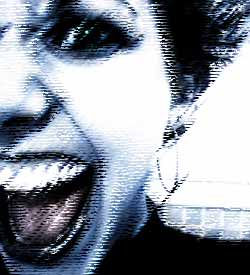Defamation
of Character
Defamation of character involves written
or spoken harm to a person or organization's reputation. Defamation
of character includes libel and slander. Libel is written defamation
of character. Slander is spoken defamation of character.
Defamation of character is the general
term used to describe both libel and slander under one umbrella.
The best defense from being convicted of defamation of character
is "truth" according to the courts.
The concept of truth is mutually
exclusive to defaming one's character since "truth"
and "character" go hand-in-hand. The second component
of defamation of character, according to most courts and jurisdictions,
is the idea of "malice" on the part of the alleged defamer.
If the alleged defamer spoke or wrote fallacy instead of fact,
fiction and falsehood instead of commonly accepted evidence, then
this in and of itself is not defaming without malice. Malice aforethought
is a legal term usually used to convict someone of first-degree
murder. It means someone had cognizant intent before committing
a crime. With defamation of character, this kind of malice must
be proven as well.
According to a definition in die.net, "Malice is a stronger
word than malevolence, which may imply only a desire that evil
may befall another, while malice desires, and perhaps intends,
to bring it about. Malignity is intense and deep-seated malice.
It implies a natural delight in hating and wronging others. One
who is malignant must be both malevolent and malicious; but a
man may be malicious without being malignant."
When can defamation of character be malicious and not be considered
defaming? If malicious and false statements are made towards an
unidentifiable group of people or organization it cannot be considered
defaming. For instance, saying "the flatulent cows are ruining
the ozone" may be false, inflammatory and ill-willed toward
the cows but no cow has been singled out as an identifiable victim.
The same can be said of the statement, "All telemarketers
are criminals!" Because a company or person has not been
specified in this statement, the statement cannot be considered
defamation of character.
Insults and epithets are also not considered to be defamation
of character. Instead these are considered to be angry outbursts
of emotion with no real content other than to show extreme dislike.
Opinion is also not considered to be defamatory as long is it
is clear that it is one's opinion which is being asserted and
cannot be mistaken for an assertion of fact.
For those who believe they have been a victim of defamation of
character, you can sue for both actual and punitive damages. The
court or the jury can assess damages in such cases.
For instance, a person may wish to sue one of the credit bureaus
for negligent and willful violations in a credit repair situation.
Being turned down for credit because of false information on the
credit reports can result in mental anguish and humiliation. Actual
damages of this type can occur even if not out-of-pocket expenses
are incurred. This happened in United States Court of Appeals,
Fifth Circuit, Case No. 91-7142, John STEVENSON vs. TRW, April
1, 1993. Mr. Stevenson was awarded $30,000 in actual damages,
$100,000 in punitive damages and $20,700 in attorney's fees.
Defamation of character cases can be won, especially if good
records are kept and actual damages can be assessed.
See Slander
Laws
See Definition
of Libel
Extra
For more information on our blog see defamation
of character
|


